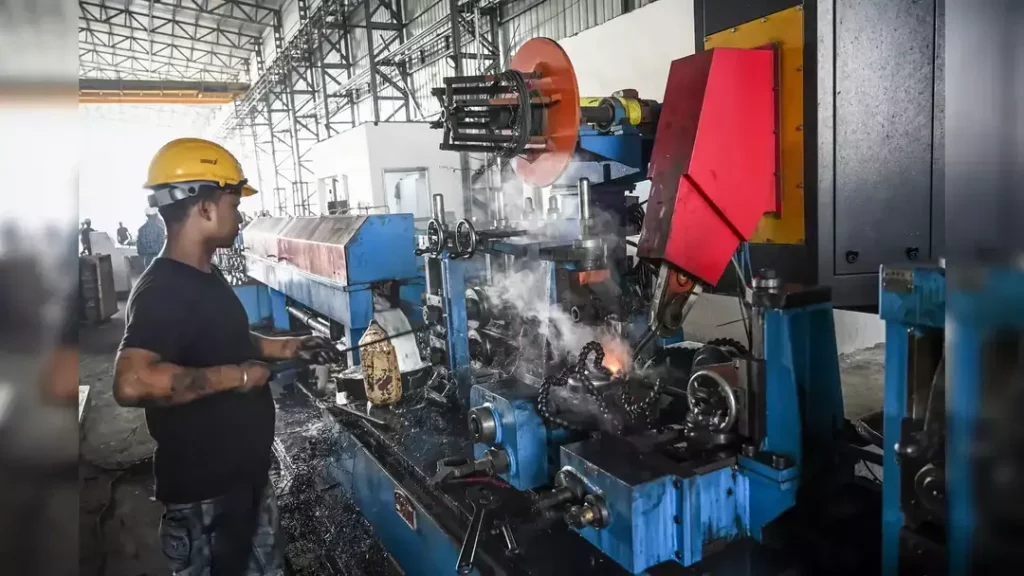
Why Skill India Fails Small Manufacturers in India
The Indian government’s Skill India initiative aimed to address the skill gap in the country’s workforce, particularly in the small and medium-sized enterprise (SME) sector. However, despite the initiative’s good intentions, it has failed to meet the needs of small manufacturers in India. According to a recent survey, 71% of MSMEs (Micro, Small, and Medium Enterprises) believe that government skill-training schemes offer no real help.
In this blog post, we’ll explore why Skill India fails small manufacturers in India and discuss potential solutions to bridge the policy-practice gap and unlock the full potential of India’s MSME workforce.
The Importance of MSMEs in Indian Manufacturing
MSMEs play a crucial role in India’s manufacturing sector, driving 35-40% of the country’s industrial production. They are the backbone of the economy, providing employment opportunities to millions of people and contributing significantly to GDP growth. Despite their importance, MSMEs face numerous challenges, including lack of access to finance, inadequate infrastructure, and skill gaps.
The Skill Gap in MSMEs
The skill gap in MSMEs is a significant concern. Many small manufacturers lack the necessary skills to compete in the global market. A recent report by the National Council for Vocational Training (NCVT) found that 63% of MSMEs in India face skill gaps in their workforce. This gap is particularly pronounced in areas such as technology, innovation, and entrepreneurship.
Why Skill India Fails Small Manufacturers
So, why does Skill India fail to meet the needs of small manufacturers in India? There are several reasons for this:
- Urban-centric programs: Many skill-training programs are designed with urban areas in mind, ignoring the needs of small manufacturers in rural and semi-urban areas. These programs often focus on standardized skills that may not be relevant to local industries.
- Lack of industry-academia collaboration: Skill India programs often lack collaboration between industry and academia. This leads to a mismatch between the skills provided by training institutions and the needs of small manufacturers.
- Inadequate digital outreach: Despite the importance of digital technologies in modern manufacturing, many skill-training programs fail to incorporate digital skills into their curriculum.
- Insufficient regional training hubs: India’s Skill India initiative has focused on setting up training hubs in urban areas, neglecting the needs of small manufacturers in rural and semi-urban areas.
Solutions to Bridge the Policy-Practice Gap
To bridge the policy-practice gap and unlock the full potential of India’s MSME workforce, the following solutions can be implemented:
- Regional training hubs: Establishing regional training hubs in rural and semi-urban areas can help provide skills training to small manufacturers closer to their workplaces.
- Industry-academia models: Encouraging collaboration between industry and academia can help develop skills that are relevant to local industries.
- Digital outreach: Incorporating digital skills into skill-training programs can help small manufacturers stay competitive in the global market.
- Customized training programs: Providing customized training programs that cater to the specific needs of small manufacturers can help bridge the skill gap.
Conclusion
In conclusion, Skill India’s failure to meet the needs of small manufacturers in India is a significant concern. The initiative’s urban-centric, standardized programs have failed to address the unique challenges faced by small manufacturers. To unlock the full potential of India’s MSME workforce, it is essential to adopt a more regional, industry-academia, and digital approach to skill training.
By establishing regional training hubs, encouraging industry-academia collaboration, incorporating digital skills into training programs, and providing customized training programs, India can bridge the policy-practice gap and boost the global competitiveness of its MSMEs.
Source:
https://ascendants.in/small_business/skill-gaps-undercut-indias-small-manufacturer-potential/






